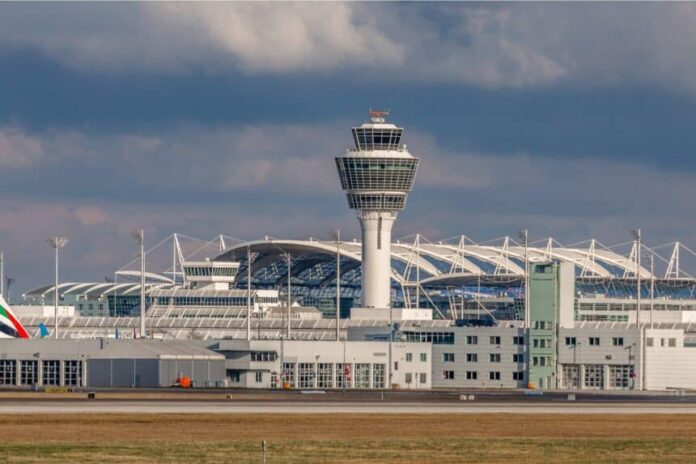Germany’s Munich Airport was thrown into chaos late Thursday night after multiple drone sightings forced an unusual shutdown, grounding flights and diverting incoming aircraft. The disruption stranded nearly 3,000 passengers and marked yet another challenge in Europe’s growing battle against drone-related airspace violations.
According to airport officials, 17 flights were grounded shortly after 10 pm local time, while 15 incoming flights were rerouted to Stuttgart, Nuremberg, Vienna, and Frankfurt. “When a drone is sighted, the safety of travelers is the top priority,” Munich Airport said in a statement. The incident follows similar disruptions last week at airports in Denmark and Norway, where drone sightings led to temporary shutdowns, highlighting mounting security concerns across Europe.
The Bavarian capital had already been on high alert earlier this week, when its iconic Oktoberfest celebrations were disrupted after police discovered explosives in a residential area. Munich Airport, one of Europe’s busiest hubs handling nearly 20 million passengers in just the first half of 2025, has now become the latest flashpoint in Europe’s aviation security crisis.
Danish Prime Minister Mette Frederiksen, responding to recent drone threats, pointed fingers at Moscow. “We can at least conclude that there is primarily one country that poses a threat to Europe’s security — and that is Russia,” she said.
European officials have reported repeated Russian drone incursions into NATO airspace over Poland and Romania, along with alleged violations of Estonian skies by Russian fighter jets. In response, the European Union is moving to strengthen its defenses against drone threats, a step seen as urgent given the escalation of geopolitical tensions.
Russian President Vladimir Putin, speaking at an event on Thursday, brushed aside the accusations with a joke, saying he “would not fly drones over Denmark anymore.” The Kremlin, however, has denied any involvement in the Munich incident or other recent disruptions.
For now, the uncertainty has left thousands of stranded passengers demanding answers, while European leaders scramble to safeguard airports against the invisible threat hovering above.








